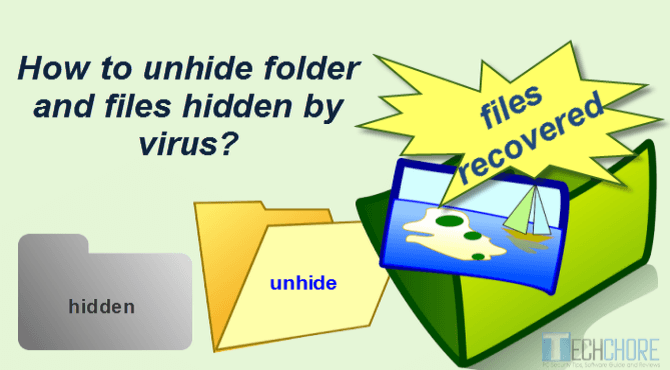Vbs Delete All Files In A Folder And Subfolders
HiI am trying to write an application to delete files in a temp directory - so for example C:WindowsTempI need it to delete all files and subfolders (including all files in these subfolders) - but to NOT delete the top/root folder i.e. Is this a VB.Net application?You can use the example below of a recursive file search to delete all files and folders below the nominated folder. Just insert the code to delete the file or folder. It uses a Try/Catch block to avoid trying to process folderswhere the permisssion is insufficient to allow access.
- Vbs Delete All Files In A Folder And Subfolders In Word
- Delete All Files And Subdirectories
- Vbscript Delete All Files In Folder And Subfolders
You need to repeat that block structure for the files, because deleting a file requires more permissions thatn just getting its name, which is all the example does. Also the actual deletionof the folder will need to be moved to after the file search within the folder (so you can process the files and subfolders before deletign it). Managed to get it working using the following code:- Imports System.IOPublic Class Form1Private Sub Form1Load(sender As System.Object, e As System.EventArgs) Handles MyBase.LoadEnd SubPrivate Sub Button1Click(sender As System.Object, e As System.EventArgs) Handles btnClean.Click'Set variable di as the path you wish to cleanDim di As New DirectoryInfo('C:WindowsTemp')tbLocationbeingcleaned.Text = di.ToString'Traverse all of the child directors in the root; get to the lowest child and delete all files, working our way back up to the top.' Application.DoEvents is fine provided that you have also protected the code against being re-executed - the command not only updates the display but also processes any pending user action such as button clicks. If the user can re-start the actionthen the button click will be processed and the current code sequence will pause while the procedure is restarted. They will then eecute in 'parallel'. In some cases this doesn't matter, in other cases it is critical and you need to ensure it can'thappen.
For instance, you could disable a button as soon as it is clicked and only re-enable it when the process completes.
Do it this way.The way you are trying to do it is incorrect. Set fso = CreateObject('Scripting.FileSystemObject')Set folder = fso.GetFolder('x:')' delete all files in root folderfor each f in folder.FilesOn Error Resume Nextname = f.namef.Delete TrueIf Err ThenWScript.Echo 'Error deleting:' & Name & ' - ' & Err.DescriptionElseWScript.Echo 'Deleted:' & NameEnd IfOn Error GoTo 0Next' delete all subfolders and filesFor Each f In folder.SubFoldersOn Error Resume Nextname = f.namef.Delete TrueIf Err ThenWScript.Echo 'Error deleting:' & Name & ' - ' & Err.DescriptionElseWScript.Echo 'Deleted:' & NameEnd IfOn Error GoTo 0Nextjv. Hi,' Delete All Subfolders and Files in a Folder Const DeleteReadOnly = TRUE Set objFSO = CreateObject ( 'Scripting.FileSystemObject' ) objFSO.DeleteFile ( 'C:FSO.' ), DeleteReadOnly objFSO.DeleteFolder ( 'C:FSO.' ),DeleteReadOnlySave the above code in test file with.vbs file extension. Modify 'C:FSO' to your folder.Disclaimer: This posting is provided AS-IS with no warranties or guarantees and confers no rights. Please remember to click “Mark as Answer” on the post that helps you, and to click “Unmark as Answer” if a marked post does not actuallyanswer your question.
This can be beneficial to other community members reading the thread. Hi,ok Thanks it works. Hi,ok Thanks it works. That code will throw a syntax error because of the parens (subroutines cannot use parens). It should read.Const DeleteReadOnly =True Set objFSO = CreateObject( 'Scripting.FileSystemObject')objFSO.DeleteFolder 'X:.' , DeleteReadOnlyorConst DeleteReadOnly =True Set objFSO = CreateObject( 'Scripting.FileSystemObject')CALL objFSO.DeleteFolder( 'X:.'

, DeleteReadOnly)However, this problem isn't likely to be script related. It's probably a permissions issue related to OS special folders (see jrv's posting).Tom Lavedas. Hi, againThis is my code: must delete files and (sub)folders but leaving parent folder' Delete all Subfolders and Files in a FolderConst DeleteReadonly=TRUESet objFSO = CreateObject('Scripting.FileSystemObject')objFSO.DeleteFile('x:.' ), DeleteReadonlyobjFSO.DeleteFolder('x:.' ),DeleteReadonlyThe share is on a cifs file systemas (Emc NAS Celerra).
I can delete manually its contents, accessing it with net use command to access the share, with domain adminstrator rights from my windows xp pc.please helpthx. Hi, againThis is my code: must delete files and (sub)folders but leaving parent folder' Delete all Subfolders and Files in a FolderConst DeleteReadonly=TRUESet objFSO = CreateObject('Scripting.FileSystemObject')objFSO.DeleteFile('x:.' ), DeleteReadonlyobjFSO.DeleteFolder('x:.' ),DeleteReadonlyThe share is on a cifs file systemas (Emc NAS Celerra). I can delete manually its contents, accessing it with net use command to access the share, with domain adminstrator rights from my windows xp pc.please helpthx.You are still not supplying enough information.1. Are you logged in as an administrator?2.

Vbs Delete All Files In A Folder And Subfolders In Word

Delete All Files And Subdirectories
What is the error message?3. If files are open they cannot be deleted.Your original request say line 6 is in error. There is no line 6 in the script. You are not telling us s good story.jv. Do it this way.The way you are trying to do it is incorrect.
Vbscript Delete All Files In Folder And Subfolders
Set fso = CreateObject('Scripting.FileSystemObject')Set folder = fso.GetFolder('x:')' delete all files in root folderfor each f in folder.FilesOn Error Resume Nextname = f.namef.Delete TrueIf Err ThenWScript.Echo 'Error deleting:' & Name & ' - ' & Err.DescriptionElseWScript.Echo 'Deleted:' & NameEnd IfOn Error GoTo 0Next' delete all subfolders and filesFor Each f In folder.SubFoldersOn Error Resume Nextname = f.namef.Delete TrueIf Err ThenWScript.Echo 'Error deleting:' & Name & ' - ' & Err.DescriptionElseWScript.Echo 'Deleted:' & NameEnd IfOn Error GoTo 0Nextjv.